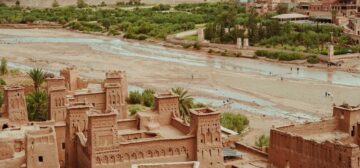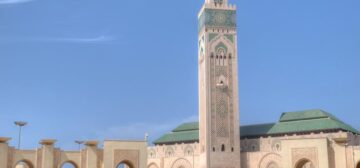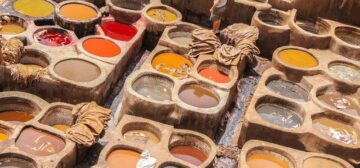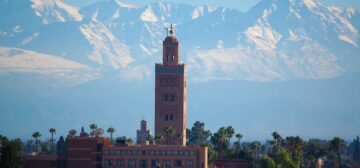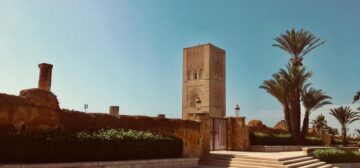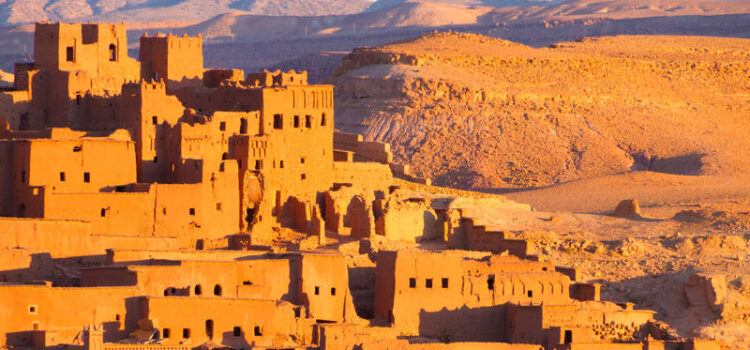Water sources outside main cities and towns may be contaminated and sterilisation is advisable. Bottled water is the best bet and is available everywhere. Milk is unpasteurised, so boil before drinking. Meat and fish should be freshly cooked and served hot. Vegetables are typically served cooked. If eating fruit, try to stick to fruit that can be peeled before eating. Most produce is grown organically, without chemical pesticides or fertilisers but it’s highly likely to have been washed in unsterilized water.Fusion isn’t a new trend in Morocco, where the cuisine is a blend of Mediterranean, Arabic, Jewish, Persian, West African and Berber influences. Meals range from the diffa, an elaborate multicourse feast featuring couscous and grilled meats, to quick brochettes (kebab) from a roadside stall. Produce is seasonal, grown locally and typically without chemical pesticides or fertilisers.Tagines, the fragrant stews of meat, vegetables or fish, named after the distinctive conical earthenware vessel they’re cooked in are the Moroccans main staple. Flavours revolve around a subtle array of spices, and traditionally every spice shop would have its own secret ras el hanout spice blend recipe.Restaurants range from buffet diners to high-end establishment serving gourmet fare. Many now offer à la carte menus and a three-course fixed-price menu is still common at dinner. Restaurants in cities and large resorts are cosmopolitan, offering a good selection of cuisines, including typical Moroccan fare, plus French, Italian, Spanish and fusion dishes.The best way to experience the true flavour of Moroccan cuisine, however, is to sample the street food. Djemaa el Fna square in the centre of Marrakech sees an explosion of pop-up food stalls after dark, and most other cities have their own foodie quarters. Scrumptious local specialities such as almonds, olives and a rainbow array of spices can be found in souks across the country.Laws on alcohol are fairly liberal (for non-Muslim visitors) and bars in most tourist areas stay open late. Wines, beers and spirits are available to tourists. Muslims are forbidden to drink alcohol. By law, no-one is allowed to drink alcohol in view of a mosque or during Ramadan, although tourist establishments sometimes flout this rule. Locally produced wines, beers and mineral waters are reasonably priced, but imported drinks tend to be expensive.Tipping waiting staff is expected (if service is satisfactory), usually up to 5 dirams on small bills, and around 10% for larger bills.

